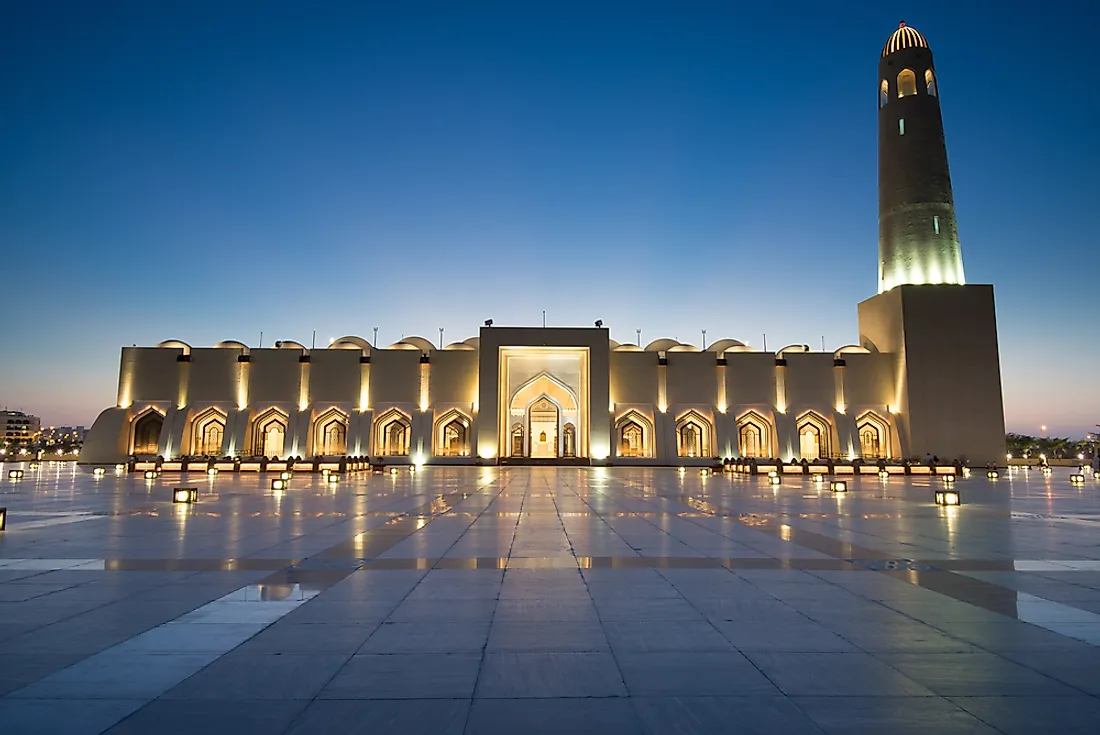What Religions Are Practiced In Qatar?

Located in the Arabian Peninsula of Western Asia, Qatar encompasses an area of 11,581 square km and hosts an estimated population of about 2,641,669 individuals. Like all other states in the Arabian Peninsula, Islam is the dominant religion in Qatar. It is also the country’s official religion. Muslims account for 67.7% of the population of Qatar. 13.8% of the population adheres to Christianity while an equal percentage are Hindus also live in the nation. 3.1% of the population adhere to Buddhism. The remaining 1.6% of the population of Qatar are either unaffiliated or are followers of other religions.
The Most Popular Religion In Qatar
Most of the Muslims of Qatar belong to the Sunni sect while only about 10% of the Muslim population of the country are Shiites. Islam determines the way of life of Qatar’s citizens. The legislation of the country is based on the Sharia law. State-sponsored schools in the country make Islamic instruction compulsory for students. Several beautiful mosques are found throughout the country with the Mohammed Bin Abdul Wahab mosque serving as the state mosque of Qatar.
Christianity In Qatar
Christians in Qatar are primarily foreigners of European, South and North American descent. Christian expats from Asian and African countries also live here but in smaller numbers. The activity of Christian missionaries is not encouraged in Qatar. The government of Qatar donated ground to the Christian religious authorities to build churches in the country in 2008.
Other Religions Practiced In Qatar
Most of Qatar’s Hindus are immigrants from South Asia and Southeast Asia. Buddhists in the country are also mainly from Southeast Asian nations. Most of Qatar’s Hindus and Buddhists are migrant workers living in the country on a temporary basis. Several other religions also have a minor presence in Qatar.
Religious Freedom And Tolerance In Qatar
The Constitution of Qatar provides for the freedom of religion in the country. However, proselytizing by non-Muslims is a punishable offense. Apostasy by Muslims is also punishable by law. Although the ruling family and the government are strictly linked to Islam, non-Muslims are allowed to work in government posts. Islamic festivals are celebrated as national holidays in Qatar. Religious groups need to be registered with the government to be legally recognized. To be approved, each group must have at least 1,500 members. The publication and distribution of religious texts in Qatar are strictly monitored by the Government of the country.
Religious Beliefs in Qatar
| Rank | Religion | Percentage of Population |
|---|---|---|
| 1 | Islam | 67.7 |
| 2 | Christianity | 13.8 |
| 3 | Hinduism | 13.8 |
| 4 | Buddhism | 3.1 |
| 5 | Unaffiliated | 1.6 |











